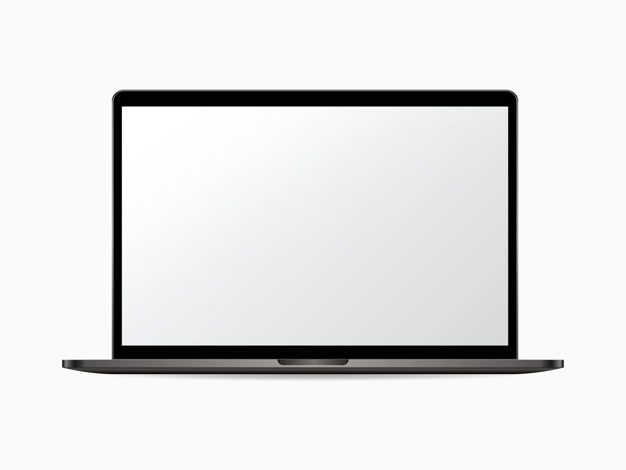MacBook Repair: Ways to Keep Your MacBook Secure

MacBook is one of the best laptops one can buy. Whether it’s the aesthetic or the performance, MacBook is unrivalled. With the amazing features, the threat of hackers comes included with the package.
It is prone to attracting a lot of bad attention, hence it’s even more important to protect it. You can get an expert opinion from consulting professionals who can provide MacBook repair services. Although MacBook has built-in security features, they are often ignored, leaving your data and privacy open to attackers.
Even if you enable all of Apple’s security features, your MacBook will not be completely safe against the latest malware.
Things You Must Do to Protect Your MacBook
Cybersecurity does not need to be difficult. In just a few simple steps, you can secure your MacBook and your most critical data. There are a few things you need to do to protect your MacBook and personal data from the most advanced cybersecurity threats.
1. Always Remain Updated
It is essential to maintain your laptop up-to-date with the latest software to keep it secure. Though macOS sends out regular notifications, you can also manually check for updates. Cybercriminals target old software since they know where to look for security flaws that developers only fix in newer versions.
Software updates can be found in Finder under the section “About This Mac”. Keeping up with software updates will assist you in protecting your MacBook and hackers at bay.
You can set future OS upgrades to be installed automatically once you have installed the latest macOS software. Select “Automatically keep my Mac up-to-date” in the Software Update section of the System Preferences.
It’s also simple to keep all your applications and programs up-to-date. In your System Preferences, go to the App Store tab and make sure that both “Automatically check for updates” and “Install app updates” are enabled.
2. Make Use of Fire Wall
Mac OS systems are known for having a built-in firewall. This firewall prevents outsiders from gaining access to the MacBook via LAN or the Internet. It will protect the personal information on your laptop.
You may enable the firewall on the MacBook by going to “System Preferences” and selecting “Security and Privacy”. The Firewall setting is found under this option.
3. Encryption
Encryption is another tool that can protect your valuable MacBook. FileVault is a feature that is used to encrypt data. Because the feature is disabled by default, you must enable it to encrypt your data on your MacBook.
To enable the encryption feature on your MacBook notebook, navigate to the “FileVault tab”. There, you may pick whether you wish to access the data or generate the decryption key to do so by selecting the preferred radio button.
4. Use a Strong Password
As obvious as it may seem, having a complicated, strong password is a sure-fire means of securing the MacBook. Unscrupulous hackers will be unable to access your laptop if you choose a strong password.
To protect your laptop, use a difficult password or use the Password Assistant Tool, which is included with the MacBook.
5. Password Manager
What are you doing to guarantee that all of your account passwords are kept up to date and secure? As previously said, securing your Mac with a strong password is critical. But what about when you’re connecting to internet accounts like social media sites and banking portals?
A password manager can be useful for a variety of reasons, including:
- Keep your passwords safe.
- Creating new difficult passwords instantly.
- When logging into apps and websites, you can save time.
- For online shopping, store payment card details.
iCloud Keychain is Apple’s own password manager. It works by keeping your passwords, account login credentials, and credit card information in a safe manner. AES 256-bit encryption, sometimes known as “military-grade encryption,” is used to encrypt all data.
6. Install a VPN
VPNs mask your original IP address and substitute it with one that is located in a different country. This implies that hackers and websites won’t be able to track your connection or pinpoint your actual location, thereby making you anonymous online.
VPNs also encrypt your surfing data; therefore, hackers would not be able to know what you are doing even if they were able to spy on you. VPNs are used for a number of reasons, one of which is the ability to access geo-restricted content.
7. Back-Up Your Files
Backing up your files on a regular basis assures that you will always have a duplicate of your files if something goes wrong with your MacBook, such as it being lost, stolen, or needing repairs.
Apple’s Time Machine feature makes backups simple. Time Machine backs up your files on a separate hard disc on a regular basis such that you can restore your MacBook Repair and data from any point in time.
8. Use Mac Antivirus
There is a lot of antivirus software, however, several of them aren’t good at securing against macOS-specific malware — particularly now that advanced malware is being directly targeted at MacBook by hackers.
Apple’s built-in security safeguards aren’t sufficient to keep your MacBook Repair safe from threats such as:
- Data breaches.
- Keyloggers.
- Phishing attacks.
- Ransomware.
- Spyware.
Antivirus software such as Airo AV and Intego are specifically built to defend Macs from a wide range of threats, such as ransomware and cyber-attacks.
When looking for a MacBook Repair antivirus look for the following characteristics to keep your laptop safe:
- Malware protection in real-time.
- Detection and removal of advanced ransomware.
- Security tools for the internet
- Protection against phishing.
- Spyware protection is available.
9. Use a Privacy-Focused Browser
It can be challenging to stay safe and secure your privacy while exploring the internet. Safari, Apple’s built-in web browser, isn’t the safest when it comes to online security and privacy; you’ll still be subject to harmful websites and phishing scams.
Other popular browsers, such as Google Chrome, will not adequately secure your privacy.
One of the greatest methods to keep safe online is to use a different secure browser. The following are a few safe browsers:
- Opera
- Brave
- Tor
These privacy-focused browsers include built-in capabilities to ensure that websites are not tracking your browsing activity or IP address to figure out where you are physical.
Conclusion
It’s hardly an exaggeration to say that your life revolves around your devices. A MacBook will store all the information you require, which is essential. Hence, it is not a good idea to risk your MacBook’s security. Therefore, it’s critical to follow these procedures, and if not, seek professional assistance from the nearest MacBook repair centre for queries related to securing your MacBook




